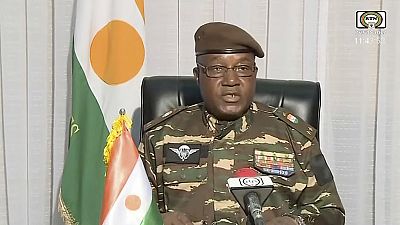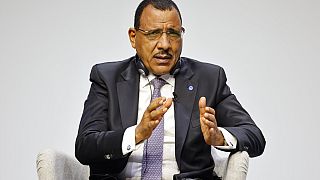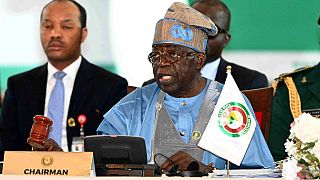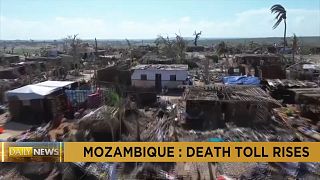Niger
The military regime resulting from the July coup in Niger announced Monday that it was ending two European Union (EU) security and defence missions in the country, as it welcomed a Russian delegation to Niamey.
Since the overthrow of elected president Mohamed Bazoum, the military in power has gradually severed ties with the fallen regime's Western partners. After having notably obtained the departure of French forces, ongoing until the end of December, they are looking for new allies and have notably moved closer to Russia.
The Nigerien Ministry of Foreign Affairs announced in a press release the denunciation of the agreement entered into by the State of Niger with the European Union relating to the European civilian mission "EUCAP Sahel Niger", active since 2012.
This mission is based in Niamey and says it has 120 Europeans and supports “internal security forces, the Nigerien authorities as well as non-governmental actors”.
The ministry also declared the “withdrawal by the State of Niger of the consent granted for the deployment of an EU military partnership mission” in Niger named “EUMPM”.
This mission was launched in February "at the request of the Nigerien authorities", to "support the country in its fight against armed terrorist groups", according to the EU Council website. Niger is plagued by jihadist violence in the west and southeast of the country.
The Nigerien government adds that it "decides to withdraw the privileges and immunities granted" within the framework of this mission, without details.
Also on Monday, a Russian delegation led by the Deputy Minister of Defense arrived in Niamey to discuss with the military authorities.
This is the first official visit by a member of the Russian government to this country since the July 26 coup which disrupted diplomatic relations between Niger and its international partners.
The Russian delegation, led by the Deputy Minister of Defense, Colonel-General Yunus-Bek Yevkurov, was received on Monday by the head of the Nigerien military regime, General Abdourahamane Tiani.
At the end of this meeting, the two parties signed documents "as part of the strengthening" of their military cooperation, indicated the Nigerien authorities. Niger has also moved closer to neighbouring Burkina Faso and Mali, partners like it Russia and led by soldiers resulting from coups d'état.
After Mali last year, Niger and Burkina announced on Saturday their departure from the anti-jihadist organization G5 Sahel. A decision which took effect on November 29, nine years after the creation of the organization whose remaining members are Mauritania and Chad.
Largely financed by the European Union, this force represented in the eyes of international partners in the Sahel a way out of a region prey to jihadist violence.
In September, Niger, Burkina and Mali created the Alliance of Sahel States (AES) to strengthen their cooperation. Like Niger, Burkina and Mali are undermined by jihadist violence, have suspended French media and obtained the withdrawal of French soldiers.












01:00
Environmental disaster in the Black Sea
01:00
Oil spill ravages Black Sea shores, causing major environmental disaster
01:12
Fears of environmental disaster following oil spill from Russian ships
01:30
ECOWAS establishes exit timeline for coup-affected nations
01:21
Guinea opposition angry at junta's extension of transitional rule
01:00
Femen campaign against the war in Ukraine